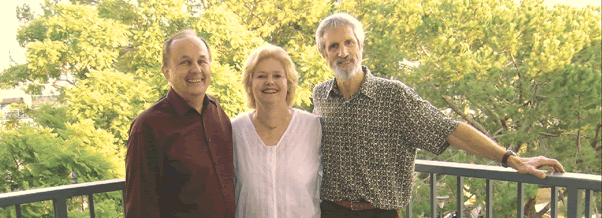Making an Impact by Providing Scholarships
Each year, scholarships are awarded to 10 students who have earned a bachelor’s degree in mathematics, physics or chemistry and intend to earn a secondary school teaching credential
January 30, 2007
By Laurie McLaughlin
In the world of academia, the shortage of secondary math and science teachers is a well-known problem. School districts are unable to compete with the salaries offered by private industry — routinely double the money — to graduates with math and science skills.
“The demand for math and science teachers greatly outstrips the numbers we can furnish,” said Richard Lodyga, director of the science education program, adding that more and more schools in low-income neighborhoods are staffed with teachers without adequate training or teaching credentials.
“What we have found with our teacher education program is that many of our college students who do want to be teachers but are in financial need either drop out and don’t go through the teacher credential program or they don’t do a good job while they are here in the program because they are trying to work at the same time,” said David L. Pagni, professor of mathematics. “We have also observed that some of our students don’t enter the credential program because they can’t afford it.”
So, with a degree in hand, he said, they go out and get a non-teaching job instead of devoting another year or so to earn the credential, even if they had previously planned a career in education.
To address the problem, Margaret Kidd, assistant professor of mathematics and director of the mathematics education program, Lodyga and Pagni are heading a program designed to support talented, low-income, prospective secondary school mathematics, physics and chemistry teachers during the year they work toward their teaching credential at CSUF’s College of Education. The program recently was awarded a four-year $400,000 Improving Mathematics, Physics and Chemistry Teaching (IMPaCT) grant funded by the National Science Foundation under the Robert Noyce Scholarship Program.
Each year, the program will award scholarships to 10 students, IMPaCT scholars, who have earned a bachelor’s degree in mathematics, physics or chemistry and intend to earn a secondary school teaching credential.
“If we can give them scholarships and ease the strain, then, hopefully, we will entice more students into becoming chemistry and/or physics teachers,” Lodyga said.
In exchange for the scholarships, the IMPaCT scholars agree to teach in low-performing schools for two years after they earn their credential, Pagni said.
Many math and science graduates take teaching jobs without having earned a teaching credential and often are given the most challenging classes, and they don’t have the skills to deal with a classroom, let alone students who need extra expertise in guiding the learning process, Pagni said.
“It’s part of our charge and our responsibility to offer this kind of service,” he said about the IMPaCT program. “The IMPaCT scholars will be able to say to secondary school students ‘I came from a background like yours, and I persevered, and now I have a degree and a credential, and you can do it too.’ ”

